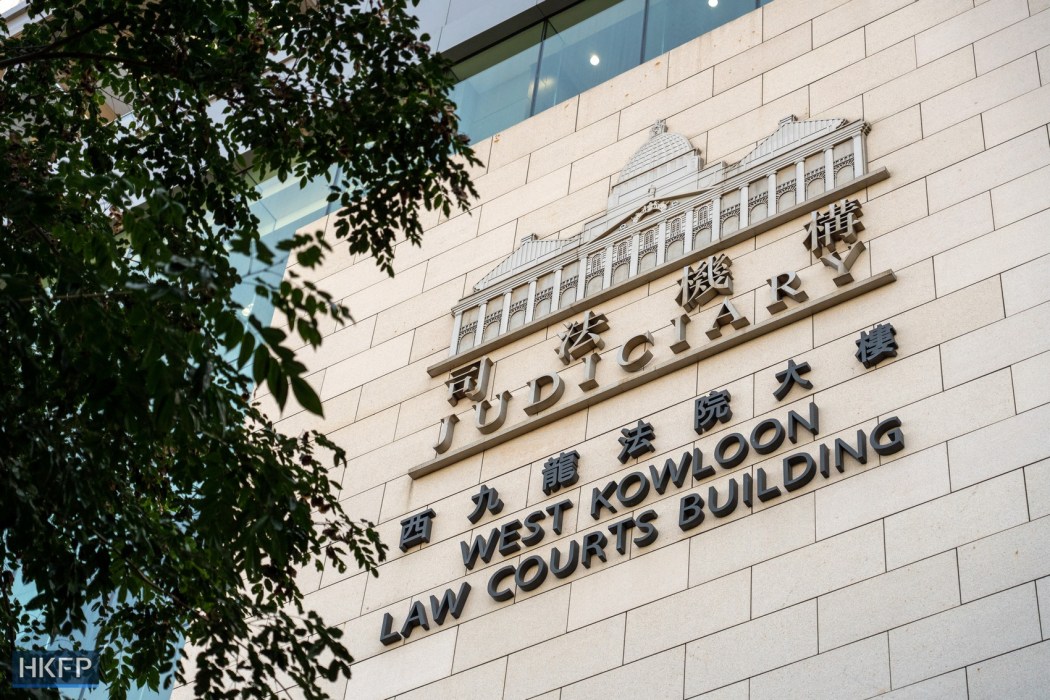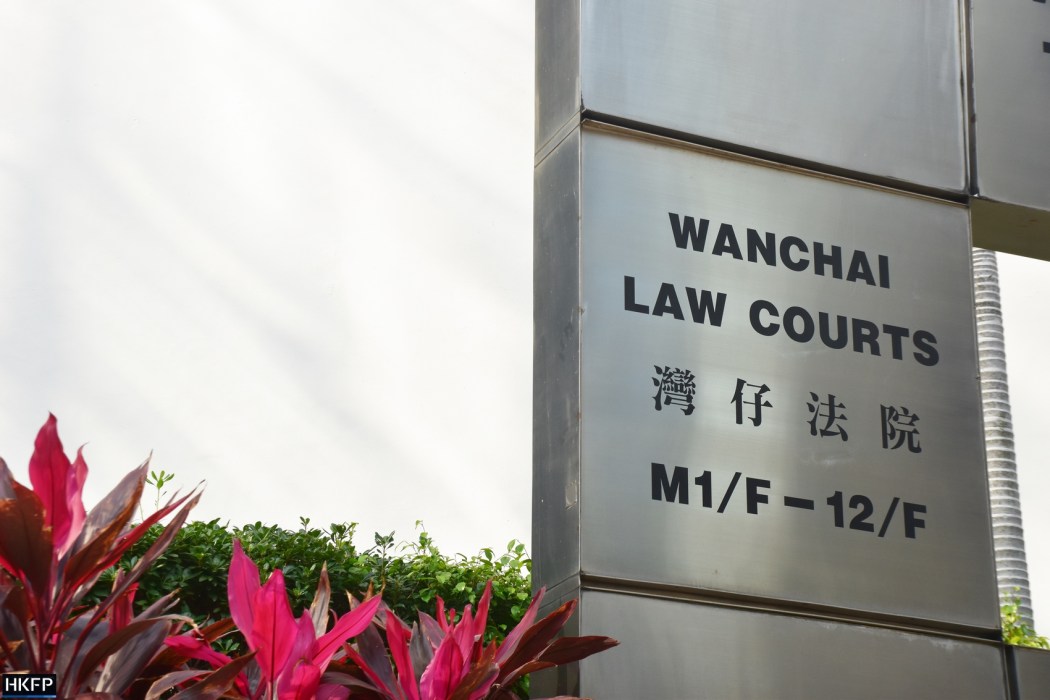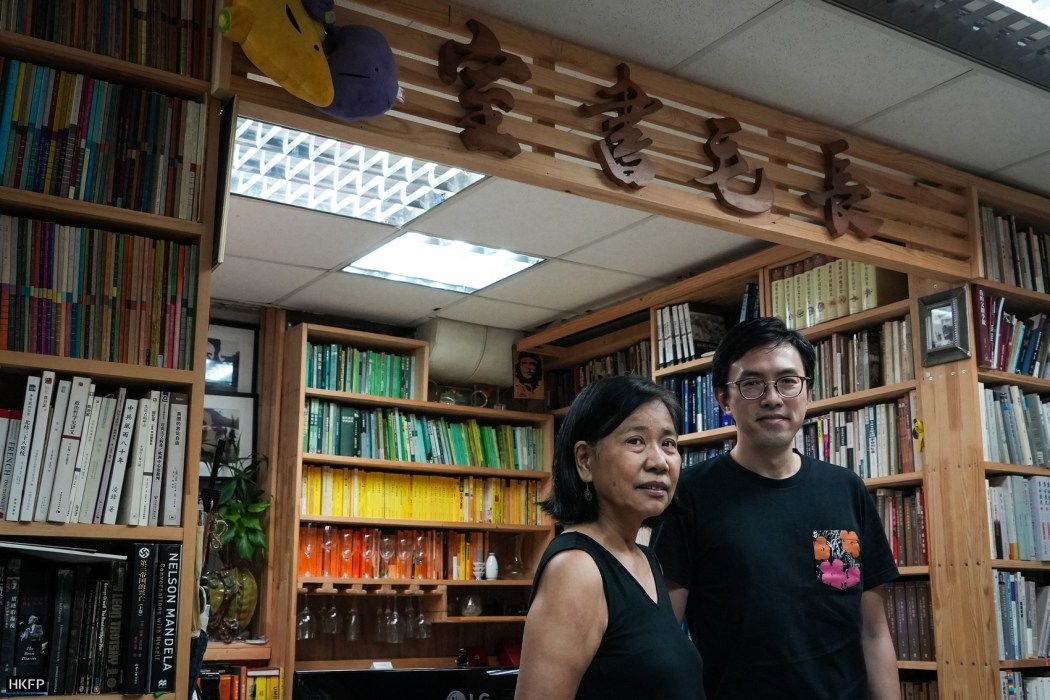CCTV cameras will be installed in all courtrooms at the West Kowloon Law Courts Building, Hong Kong’s Judiciary announced on Friday. Security checks will also be implemented at the District Court in Wan Chai.
Security camera recording will begin from October 17, according to a statement from the Judiciary. The move was to “deter unruly behaviour or incidents inside courtrooms.”

In February this year, a new recording played before court sessions began was rolled out, with court goers warned “not [to] engage in disruptive conduct such as shouting, clapping, chanting of slogans or displaying placards.”
The audio recording also said that judges had the power to give directions on court users’ clothing, conduct or any items they displayed, and that anyone who disobeyed the rules could be barred from the courtroom or court building.
People in the public gallery sometimes wave or shout greetings or slogans to defendants, usually at the beginning or the end of protest-related court hearings or national security and sedition cases.
On some rare occasions, people in the public gallery might react to comments made by judges, lawyers or defendants during the court hearing.

Six people were arrested by the national security police under the colonial-era sedition law in April after they were suspected of disrupting hearings at various courts. Two people were later charged under the sedition law. Both pleaded not guilty to the charges.
Security screening
Security checks, which have already been launched at the West Kowloon court and the High Court, were designed to prevent “prohibited items” – including knives and liquids – from being brought into designated areas of the courthouse, the Judiciary said in Friday’s statement.
Screenings will be conducted on all nine court floors of the Wan Chai court building from October 28, where court goers will have to undergo body screenings as well as bag inspections.
“The Judiciary urges all court users to arrive at the District Court earlier, in particular during peak hours in the morning or after lunch break,” the statement read.
Visitors will also be barred from bringing water or drinks to the court floors. The Judiciary said that drinking water will be provided, and that vending machines are available on floors.
‘Disproportionate’ and ‘excessive’
Chan Po-ying, chairperson of pro-democracy group the League of Social Democrats (LSD) and a frequent court goer, told HKFP that the new measures were “disproportionate.”
Chan said that there were already security guards stationed in the courtrooms, and that it was rare for an incident to occur in court.
“I think it’s disproportionate, especially when there is going to be CCTV at the West Kowloon [courtrooms]; it is like surveilling people in the public gallery,” said Chan.

“It has exceeded security reasons and implies surveillance or even intimidation of court goers.”
Avery Ng, former chair and current member of the LSD, told HKFP that he thought the new measures were “excessive.”
“Public galleries in courtrooms were intended to give people the opportunity to monitor the judicial system in practice and to ensure its fairness,” said Ng.
“However, now, with the higher level of technology, the court is surveilling how the public monitors the court… it is unnecessary and could make the public uneasy when they listen to court cases.”
Ng said that the “so-called nuisance” in courtrooms was only people clapping hands or saying a few words before or after the court hearings, or some individuals wearing different coloured facemasks.
“I think it is excessive to enhance [security measures] to monitor such innocuous things,” said Ng, who also added that the new measures might add more concerns for those wishing to attend court hearings.
Support HKFP | Policies & Ethics | Error/typo? | Contact Us | Newsletter | Transparency & Annual Report | Apps
Help safeguard press freedom & keep HKFP free for all readers by supporting our team

LATEST FROM HKFP
HKFP has an impartial stance, transparent funding, and balanced coverage guided by an Ethics Code and Corrections Policy.
Support press freedom & help us surpass 1,000 monthly Patrons: 100% independent, governed by an ethics code & not-for-profit.










